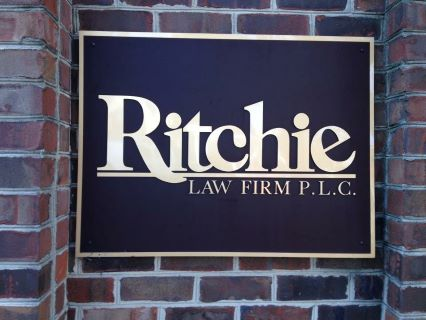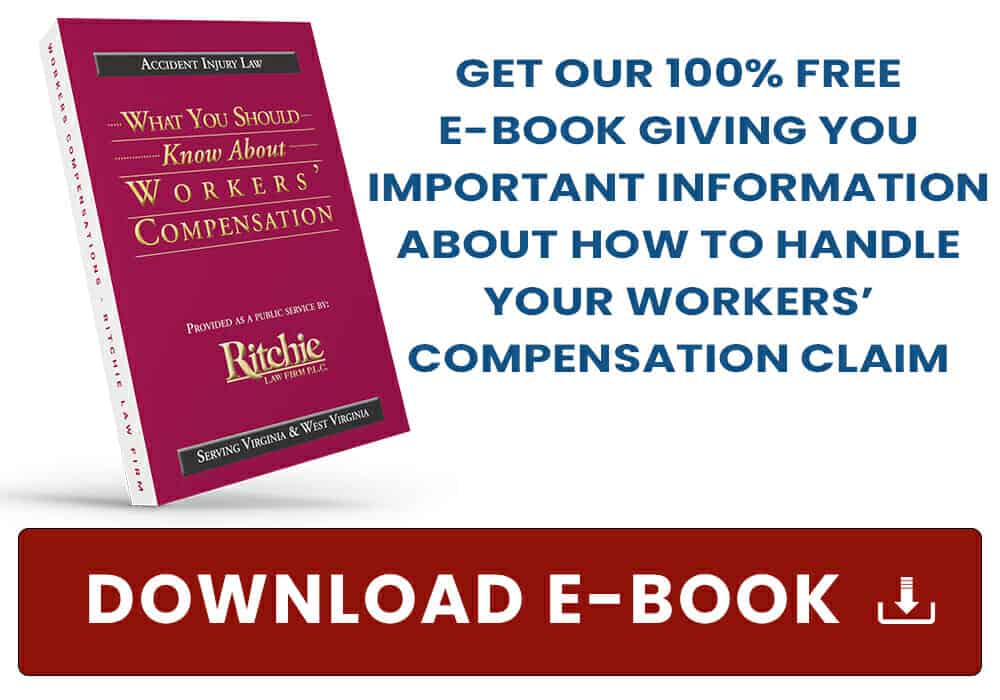Virginia Workers’ Compensation Claim
If you’ve been injured on the job, you may find that the Virginia Workers’ Compensation system can be a complex and confusing process. Following all the deadlines and rules of the Virginia Workers’ Compensation Commission may seem like a trap ready to ensnare you. To help you through the process, below is a list of common questions and answers our firm gets about Virginia Workers’ Compensation:

Common Q and A: Virginia Workers Compensation Act
-
- What is workers’ compensation? Workers’ compensation in Virginia is intended to replace income lost when an injury occurs on the job or in the performance of the injured workers’ job. Workers’ comp helps to restore earning capacity (what the worker could have earned) and tries to return the worker to productive employment.
- What is meant by the term impairment? An impairment in workers comp is the loss of, loss of use of, or derangement of any body part, system, or function.
- What is a permanent impairment? A permanent impairment is an impairment or disability that isn’t likely to get any better even with medical treatment. A permanent impairment often results in the worker being permanently disabled.
- What is maximum medical improvement? Maximum medical improvement happens when your condition has improved as much as it is going to improve with medical treatment.
- How is an impairment rating made? A rating of a permanent impairment is generally made from test results which are collected during an evaluation. During the evaluation, an examination is made by a physician and is then compared to criteria listed in the Guides to Evaluation of Permanent Impairment, which is published by the American Medical Association.
- In workers’ comp, what are the different types of disability? Yes. See the types listed below.
- Temporary Total Disability — This is a work related injury where the worker is expected to be unable to return to work for a temporary period of time. But, the doctor still expects the worker to be able to return to work at some point after a period of recovery. In Virginia, this compensation for lost wages generally amounts to 2/3 of the worker’s average weekly wage.
- Temporary Partial Disability — This is an injury to a worker that is only partially disabling to the employee for a temporary time period. With this type of injury, the worker will probably be able to continue to work on his or her job, but there may be a reduction in the what is expected. If the worker is reassigned to a different job or is forced to find another job because the employer doesn’t have light-duty available, the workers’ compensation insurance carrier will pay the difference in any lost wages discrepancy.
- Permanent Partial Disability — This is a work related injury that causes the worker to have a permanent disabling condition for the rest of his or her life. In many cases, the worker may continue to work but at a reduced level of activity. In the case of reduced activity, there could also be a reduced ability to earn money. In that situation, the workers’ comp insurance company will usually be required to pay the difference in what was earned before the injury and the new wage.
- Permanent & Total Disability — This is an injury where the worker is totally disabled permanently. With this situation, it is usually believed that the worker won’t be able to perform any type of work for the rest of his or her life.
- Death Benefits — This is a group of benefits that are given when a person dies while performing a job or after suffering a work related injury. In this situation, the deceased person’s beneficiaries are eligible for compensation which is usually based on the most recent period of time during which the employee was employed.

7. What medical benefits are covered by Virginia Workers’ Comp? Usually, Virginia Workers’ Compensation covers the reasonable cost of medical expenses for emergency medical treatment, physicians, medications, hospitalizations, and other needed treatments. An injured worker is entitled to lifetime medical benefits for medical expenses related to their work injury. Additionally, incidental care, equipment, and travel to physician appointments and other medical care may also be covered. Generally, employers are not required to pay medical bills for treatment or equipment that may be medically appropriate but not necessary.
8. What should I tell my treating doctor about my accident and injuries? The doctors who provide medical treatment will know you were involved in an accident and will often not ask for much detail. So, you should try to give the doctor as much detail as possible about what happened to your body during the accident, so that information can be properly recorded in your medical records. Including specifics about the parts of your body that were struck, the location of any bruises and areas of soreness is very important. Also, including details about whether you lost consciousness or had problems with your vision or memory after the accident will be important as well. It is important that you describe the kind of pain (sharp, dull, aching, burning, tingling, etc.) as well as what types of activities aggravate the pain.
9. Am I entitled to pain and suffering in my Virginia workers’ compensation claim? Generally, Virginia workers’ compensation claims do not include compensation for pain and suffering. Read more in our article here.
Virginia Workers Compensation Commission
The Virginia Workers Compensation Commission (VWCC) is an agency of the Commonwealth of Virginia established to process and rule on workers compensation claims. The VWCC is tasked with ensuring that injured employees receive benefits guaranteed by Virginia Workers Compensation Act. The VWCC is involved with communicating with workers compensation insurance companies and resolving disputes between injured workers and insurance companies.

Talk To A Virginia Workers’ Compensation Lawyer
We hope our Virginia Workers’ Compensation Questions and Answers has been helpful. If you’ve been injured on the job, it is helpful to talk to a lawyer who is experienced in workers’ compensation claims. At the Ritchie Law Firm, you can talk to us for FREE . . . NO STRINGS ATTACHED! We can give you advice on your claim before you make a decision that could damage your case. Check out our article on “How Much Does a Workers’ Comp Lawyer Cost” here.
For more than 50 years, the Ritchie Law Firm has successfully helped thousands of injured workers navigate the complex Virginia workers compensation claim process. The Ritchie Law Firm specializes in serving injury victims. We never represent insurance companies or corporations. If your workers’ compensation case is going to hearing, you will want a trial expert on your side. We are board certified trial specialists through the National Board of Trial Advocacy. The attorney you choose for your workers’ compensation case can make all the difference.
Virginia Workers’ compensation is a complex system that can be very difficult to navigate. Be very careful to make certain that your rights are protected before you sign anything. There is no cost to talk to our workers’ comp lawyers. If we take your case, we don’t get a fee unless we win your case. There is no risk to you to get some information about your case before you make any decision that might negatively affect its outcome.
Choose your lawyer with care. . . you can talk to us for FREE.
Call today 540-433-6124, fill out the form below or
download our free ebook in the side panel.
Ritchie Law Firm is a personal injury law firm devoted to helping individuals who have suffered serious injuries as a result of a job injury. Ritchie Law Firm serves injured workers in all of Virginia, while helping clients in cities and surrounding areas of Harrisonburg, Charlottesville, Staunton, and Winchester. Check out case studies from some of the cases we’ve handled by clicking here. Or contact us by completing the form below:


